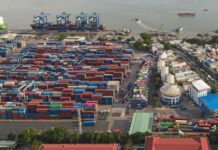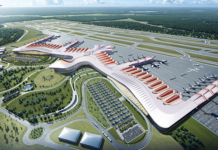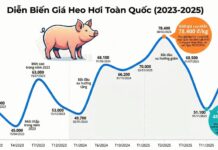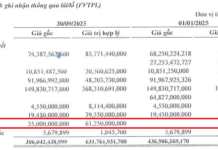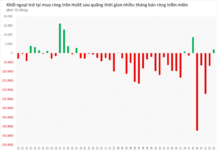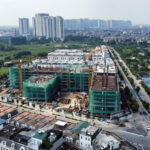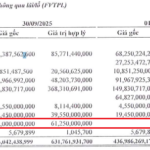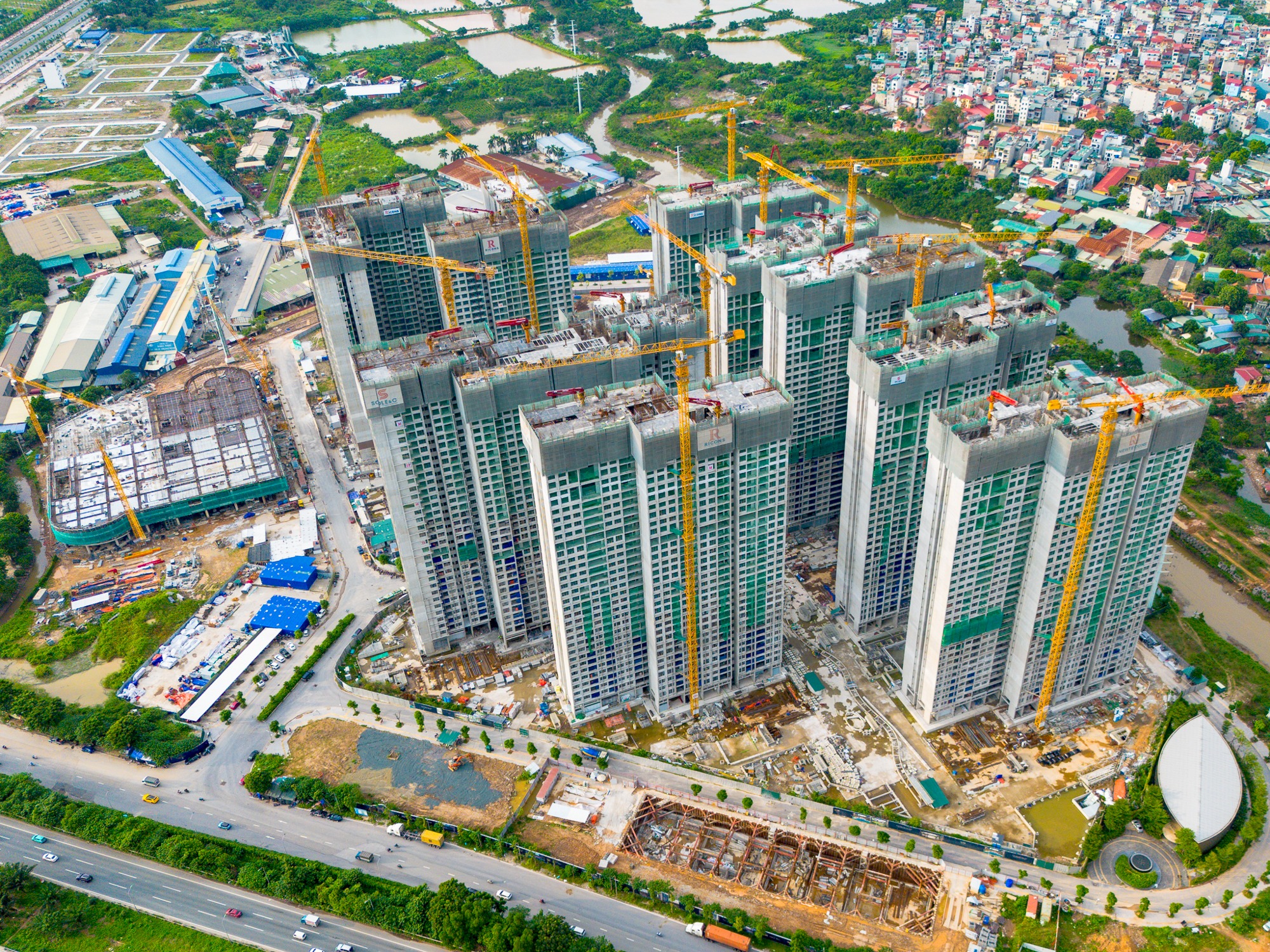
The Hanoi Department of Agriculture and Rural Development has recently drafted a proposal for the city’s first land price list, set to take effect from January 1, 2026. According to the proposal, the highest residential land price in Hanoi is expected to be over 702 million VND per square meter, applicable to areas within the former Hoan Kiem district. The most significant increases are proposed for suburban areas, ranging from 16% to 26%.
In response to the proposed land price hike, the Vietnam Real Estate Association (VNREA) emphasizes that land is a critical production input, and land prices directly contribute to the cost structure of products through land use fees, land rental fees, and compensation costs for site clearance. These factors impact both local businesses and residents.
The new land price list will influence businesses’ access to land, input costs, product pricing, and overall competitiveness. A sharp increase in land prices will also place significant pressure on public investment costs and infrastructure project timelines. Higher land costs could lead to budget overruns for key city projects, complicating fiscal balancing efforts.
Additionally, prolonged negotiations and compensation processes may delay project implementation, undermining public investment efficiency and the city’s goal of developing synchronized infrastructure in the coming years.
If land prices rise significantly, housing costs will follow suit, diminishing investment appeal, particularly for real estate projects in suburban areas. This could hinder the city’s plans to develop housing in these regions to alleviate population density in the urban core. Consequently, the housing supply may shrink further, posing challenges to social stability.
Moreover, higher land prices will strain the finances of both residents and businesses due to increased financial obligations, such as land use taxes, land-use conversion fees, and related charges. This will also burden the state budget when compensating and resettling affected parties.
Rising land prices will likely drive up rental costs as well. Rental prices near universities have already surged by approximately 30%, making it harder for students to afford housing in these areas.
In recent years, the government, ministries, and local authorities have sought solutions to reduce real estate prices. VNREA argues that aligning land prices and input costs appropriately will help lower property prices, including housing. One effective strategy is to reduce input costs that contribute to real estate pricing. However, higher land prices will increase production costs, limiting access to housing for those with genuine needs. For commercial housing projects, increased land prices will compromise feasibility, further driving up home prices.
Currently, the real estate market is in a fragile recovery phase, with many businesses restructuring and facing capital shortages. An increase in land prices at this time could impose a “double burden,” slowing market recovery.
Therefore, VNREA advocates for land pricing that enhances access to land, fosters a conducive business environment, and stabilizes land price fluctuations, particularly for non-agricultural production land. Such measures are essential for supporting investment plans, business operations, and the city’s economic development.
Sky-High Prices: Hanoi’s Premium Apartments Hit Over 300 Million VND per Square Meter
Discover the most sought-after residential areas in Hanoi’s condominium market, where premium prices reign supreme. Leading the pack is Nghia Do Ward, boasting an impressive price range of VND 158-314 million per square meter. Close behind, Phu Thuong Ward offers luxury living with rates between VND 145-247 million per square meter. Meanwhile, Tu Liem Ward presents a competitive option, with prices ranging from VND 92-239 million per square meter. These prime locations set the benchmark for high-end living in the capital.
Unlock the Future of Real Estate: Ministry of Construction Promotes Online Property Transactions
The Ministry of Construction is seeking public input on a draft decree regarding the development and management of housing databases and the real estate market. Notably, the proposal encourages real estate transactions to be conducted through trading centers or electronic methods. This initiative is seen as a significant step toward enhancing transparency, improving oversight efficiency, and gradually establishing a digitized real estate market in Vietnam.
Is the Real Estate Price Control and Restraint Policy Sufficient?
The objective of this article is to analyze international experiences in designing and implementing macroprudential policies for the housing market, extracting viable and contextually relevant policy lessons applicable to Vietnam. By examining these insights, the aim is to enhance financial stability and ensure that real estate price fluctuations align with the fundamental economic factors driving the Vietnamese economy.
Vietnamese Real Estate Emerges as the New Hotspot for Overseas Vietnamese
U.S. home prices have plateaued, and investment returns are dwindling, while Vietnam’s real estate market is gaining traction with its investor-friendly regulations and high profit potential. A growing number of overseas Vietnamese are returning home, seeking opportunities to own property and make long-term investments.





